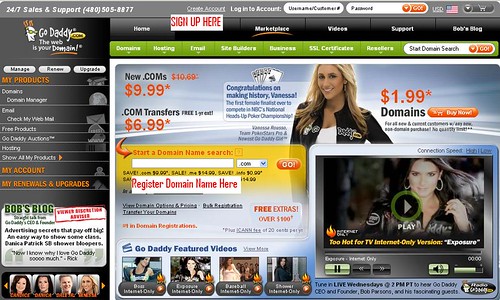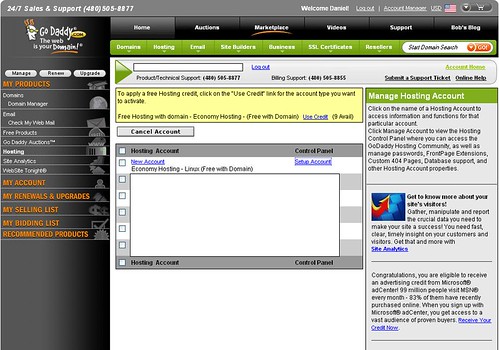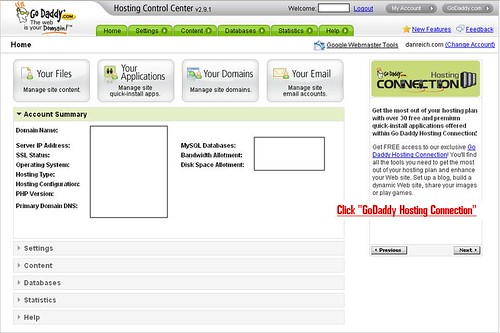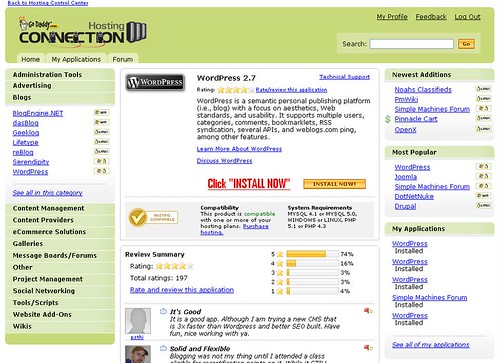Dear Ambassadors and Respected Representatives of UW-Madison and Education
In the back of my mind I’m always thinking about education and change. Below is an open letter written to some faculty members of my alma-mater about the importance in recognizing that change.
(Before reading this letter, please note that I will be making this letter publicly available on my blog. Also, kindly take note of the recipients.)
To: Chancellor Carolyn Martin – chancellor@news.wisc.edu
To: Provost Julie Underwood – junderwood@wisc.edu
To: Director of Admissions, Steve Amundson – samundson@uwmad.wisc.edu
To: Dean of Students, Lori Berquam – lberquam@odos.wisc.edu
To: Senior Policy and Planning Analyst, Hazel Wade – symonette@bascom.wisc.edu
To: Associate Dean of Students, Argyle Wade – awade@odos.wisc.edu3/31/2009
Dear Ambassadors and Respected Representatives of UW-Madison and Education,I am writing to you out of extreme concern for the future well being of my alma-mater and your home, UW-Madison. The admissions process, curriculum structure, and speed to iterate are overwhelmingly frustrating and alarming. The arguments and issues addressed throughout this letter only reflect my first hand experiences, but I firmly believe these issues are far-reaching and not specific to UW. Nevertheless, these issues exist and must be addressed, or at the very least, must be thoroughly considered. By way of introduction, my name is Dan Reich and I am a recent graduate (May 08’) from UW-Madison’s College of Engineering (Electrical). During my four year tenure at UW, I was able to accomplish some great things, including but not limited to:
- Initiated into Eta Kappa Nu (Electrical Engineering honor society)
- Awarded inaugural Accenture Leadership Center (ALC) Foundation award for my work in launching Accenture’s very own leadership program across the school of business and college of engineering
- Certified in Wisconsin’s Center for Applied Microelectronics whereas I was able to conduct Terahertz generation research
- Started and founded two independent Limited Liability Companies while attending school
Additionally, I have a younger brother Jeremy who is currently enrolled in UW’s school of business where he is double majoring in real estate and risk management. I also have a younger sister, who I would like to say is also a legacy, but was recently rejected by the UW admissions office. A sister who admittedly did not score as high as she could have on her SATs, but did have excellent remarks in school, as well as other critical skill sets and experiences (she also attended UW’s summer program). This is an individual who if assessed in relation to her peers, in my objective estimation, is a stronger candidate for success than most. Nevertheless, I believe the admissions process is critically flawed and this belief is not exclusively dependent upon my sister’s recent rejection.
While I believe the admissions process in general could be significantly improved, (which I’m more than happy and eager to discuss with any admissions officer at UW at any point in time), I will start my focus on the issue of networking in light of recent events.
As an individual who is currently working in a digital media and technology startup company specializing in social networks, emerging trends and technologies, I understand the importance of networks. Networks are literally changing the world. We see it happening everyday as companies like Google, Facebook, LinkedIn, Etsy, Twitter and others utilize the power of what Mark Zuckerberg calls “elegant organization.” When a single node is affected on a network, those directly tied to that node, piece of information or person also feel a change. The connections are what is most important. So, how does this have any relevance to the admissions process?
UW-Madison, as well as other schools throughout our society, should know this answer better than anyone else. Since 1848, UW has been building a super network of students and alumni. Every year UW graduates about 10,000 students who go on into the working world thus strengthening the badger universe. These are people who are ambassadors to the UW brand and are lifelong members of the network, and additionally each member has numerous other networks that are additive in value to the primary group: what we call Badgers.
Now you might imagine what I was thinking when I heard that my sister was not admitted into UW. A school that had endured not only my sweat, blood and tears, but also that of my brother. A school in which I had given money, time, but most importantly, a tremendous amount of value through conversation and action. So again, when I heard that my sister did not get into UW, you might think my reaction was “Why didn’t she get in?” but instead, my reactions were:
- Why is the school degrading the network it has worked so hard to build?
- How do you review applications? Why do you do it that way?
- Doesn’t the school consider an applicant’s legacy within the school, and more importantly, their track record (I had a 2.5 GPA first semester and graduated with honors)?
- Why didn’t I get a phone call from the school saying, “Dan, we just wanted to take the time and let you know that your sister did not get into the school?” or “Dan, if you and your sister are willing, we would be more than happy to go over why she wasn’t accepted?”
- Why would I want to continue to support an entity that I believe has poor judgment?
In one phone call, you could have showed that you still care about your network in a very personal and meaningful way. Instead of strengthening your network, you weakened it.
How do you expect to compete in a rapidly changing world using obsolete methods and practices? Students are beginning to realize getting a “degree” is less valuable than getting practical, real world work experience. They can take courses online and learn what they need to learn with companies like Phoenix, Kaplan, BigThink, Academic Earth and even YouTube. Why spend $500/semester on books when I can get the same information free online? Why would students want to pay full tuition to an accredited university when at the end of the day they are taught linear algebra by a teacher’s assistant that speaks poor English, makes continual mistakes (which were witnessed by a head of department), and has inconsistent grading (this happened to me junior year. That semester I had a 4.0 GPA until given a C by a TA)? Why implement practices that have students cramming for exams instead of using methods enabling true adoption of the material (I wrote a piece about this on my blog entitled, The University of Nothing. This post received over 60 comments from various communities and sites, and the consensus was that current education systems are in trouble. I’m also willing and eager to discuss this point further with any faculty member. In fact, I had this conversation with one of my engineering professors when he asked my opinion on “why the enrollment in engineering was decreasing.” He was giving a presentation to his peers on this very topic).
In any case, this letter is not intended to bad-mouth or criticize current practices at UW. It is however intended to act as a wake-up call. I only and respectfully ask two things:
- Please reconsider how you value your network and remember that we among the network are all ambassadors to UW-Madison. We are your most valuable asset.
- Please reconsider how UW-Madison can take the lead and become the most efficient and attractive educational institution of tomorrow. The world is changing and so should you.
Again, I’m happy to speak to anyone and everyone about these issues. Please feel free to leave comments on my blog or send me an email at reich.ny [at] gmail [dot] com. I most welcome a phone call and conversation.
My Very Best Regards,
Dan Reich

![Reblog this post [with Zemanta]](https://img.zemanta.com/reblog_e.png?x-id=a7040a03-8dbc-4861-82ca-733456bbeb53)

![Reblog this post [with Zemanta]](https://img.zemanta.com/reblog_e.png?x-id=59939bae-59e7-4e68-9da4-f6596d5f33ba)

![Reblog this post [with Zemanta]](https://img.zemanta.com/reblog_e.png?x-id=d7a8606c-8232-4834-99cd-b8c065a06bb3)

![Reblog this post [with Zemanta]](https://img.zemanta.com/reblog_e.png?x-id=9b895310-5bcc-4a8d-bb36-cf273b3b2ffb)

![Reblog this post [with Zemanta]](https://img.zemanta.com/reblog_e.png?x-id=bcac4fc0-6750-41ca-97ec-268f46f27b28)







